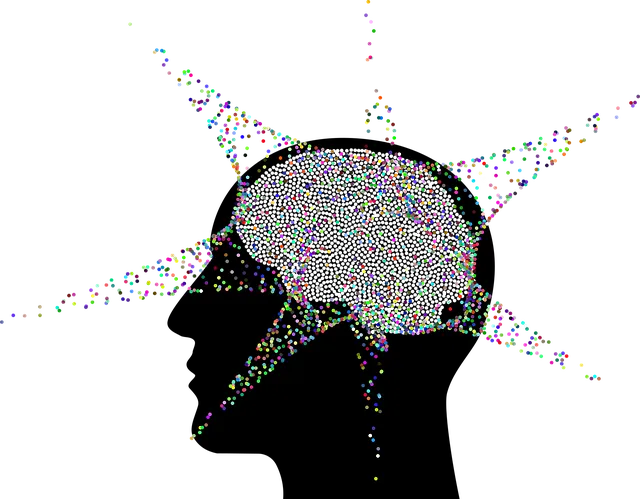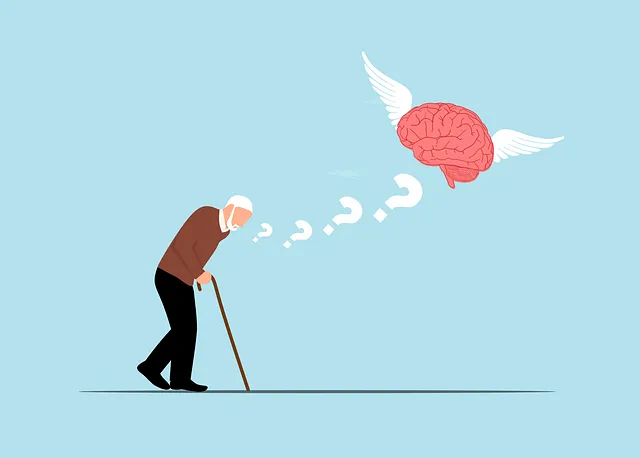Kaiser Permanente's mental health centers in Highlands Ranch utilize skilled facilitators to lead group therapy sessions, fostering a healing environment through open dialogues, self-care routines, and emotional support. These methods, highlighted in positive Kaiser Permanente mental health center reviews Highlands Ranch, enhance outcomes, reduce stress, and build community, empowering individuals to take charge of their mental wellness journeys. An inclusive, safe space encourages honest participation, fostering improved emotional intelligence, relationships, and well-being.
Mental wellness group facilitation plays a pivotal role in supporting individuals navigating challenges. This article explores effective techniques through real-world insights from the Kaiser Permanente Mental Health Center, focusing on its successful programs at Highlands Ranch. We delve into key aspects such as creating safe spaces, engaging participants, and measuring impact. By understanding these facilitative strategies, mental health professionals can enhance group support, fostering resilience and well-being among members. Reviews of Kaiser Permanente mental health center services at Highlands Ranch highlight the positive outcomes achievable through skilled facilitation.
- Understanding Group Facilitation in Mental Health Support
- The Role of a Facilitator at the Kaiser Permanente Mental Health Center
- Creating a Safe and Inclusive Environment for Participants
- Techniques to Engage and Empower Group Members
- Measuring Success: Evaluating the Impact of Group Facilitation Programs at Highlands Ranch
Understanding Group Facilitation in Mental Health Support

Group facilitation plays a pivotal role in enhancing mental wellness support at Kaiser Permanente mental health centers like the one in Highlands Ranch. It’s a dynamic approach that goes beyond individual therapy, fostering a sense of community and shared understanding among participants. Skilled facilitators guide conversations, encourage active participation, and create a safe space for individuals to share their experiences, challenges, and insights.
Effective group facilitation techniques, including strategic communication strategies and promoting self-care routine development for better mental health, are crucial for managing sensitive topics within these groups. Moreover, risk assessment for mental health professionals is essential to ensure the well-being of both facilitators and participants while navigating complex issues. By leveraging these techniques, mental health centers can deliver comprehensive care, ultimately contributing to improved outcomes and enhanced patient satisfaction, as evidenced by positive Kaiser Permanente mental health center reviews in Highlands Ranch.
The Role of a Facilitator at the Kaiser Permanente Mental Health Center

At the Kaiser Permanente Mental Health Center in Highlands Ranch, the role of a facilitator goes beyond mere coordination. They serve as guiding forces within group therapy sessions, fostering an environment conducive to mental wellness and healing. These facilitators are trained professionals equipped with advanced skills in Compassion Cultivation Practices, enabling them to navigate complex emotional landscapes with empathy and understanding. By integrating these techniques into their facilitation, they help participants cultivate resilience against stress and burnout, a significant concern in the healthcare industry, as highlighted in numerous Kaiser Permanente mental health center reviews.
Moreover, the facilitator plays a pivotal role in the development and execution of Mental Wellness Coaching Programs. They design engaging activities that promote self-awareness, emotional intelligence, and effective communication—essential components for maintaining mental balance. Through active listening and thoughtful questioning, facilitators encourage participants to explore their thoughts and feelings, providing a safe space for vulnerability and genuine connection. This supportive approach not only aids in Burnout Prevention but also empowers individuals to take charge of their mental wellness journey.
Creating a Safe and Inclusive Environment for Participants

Creating a safe and inclusive environment is paramount for effective mental wellness group facilitation. At Kaiser Permanente mental health centers like those in Highlands Ranch, facilitators play a crucial role in fostering an atmosphere where participants feel comfortable expressing their thoughts and emotions. This involves active listening, empathy, and a commitment to non-judgmental support. By promoting emotional well-being through open dialogue and genuine connection, facilitators encourage honest participation, which is essential for the success of group therapy sessions.
In addition to fostering emotional well-being promotion techniques, facilitators should incorporate social skills training activities that enhance communication and build a sense of community among members. This not only strengthens interpersonal relationships but also provides a supportive network where individuals can share experiences and learn from one another. An inclusive environment, characterized by respect for diversity and individual differences, is a cornerstone in the journey towards improved mental wellness, as evidenced by positive Kaiser Permanente mental health center reviews from Highlands Ranch residents.
Techniques to Engage and Empower Group Members

Facilitating a mental wellness group requires engaging techniques to empower every member and ensure active participation. One effective approach is open-ended communication, encouraging members to share their experiences and insights freely. Group facilitators at the Kaiser Permanente mental health center in Highlands Ranch promote this by using prompting questions that invite personal narratives, fostering an environment where individuals feel heard and valued. This technique not only enhances mental health awareness but also strengthens the bond among group members.
Additionally, incorporating interactive activities and diverse discussion formats can keep the group dynamic and engaging. Risk Management Planning for Mental Health Professionals suggests strategies to handle sensitive topics while creating a safe space for expression. Effective communication strategies, such as active listening and reflective summarizing, empower group members by ensuring their voices are heard and respected. These techniques contribute to a supportive atmosphere, encouraging open dialogue and personal growth within the group setting.
Measuring Success: Evaluating the Impact of Group Facilitation Programs at Highlands Ranch

Measuring success is a vital aspect of evaluating the effectiveness of group facilitation programs, especially at Kaiser Permanente mental health centers like Highlands Ranch. The impact of these initiatives extends beyond mere attendance; it delves into tangible improvements in participants’ lives. One key metric could be the number of individuals who report enhanced emotional intelligence, enabling better stress management and improved interpersonal relationships. This fosters a supportive environment, reducing feelings of isolation often associated with mental health struggles.
Additionally, regular assessments can gauge the development of coping skills among group members, which is crucial for burnout prevention. As participants gain practical tools to navigate challenges, their overall well-being improves, leading to increased productivity and life satisfaction. The success of these programs becomes evident through positive Kaiser Permanente mental health center reviews, highlighting transformed lives and the lasting impact on Highlands Ranch’s community.
Group facilitation techniques play a pivotal role in enhancing mental wellness support, as evidenced by successful programs at the Kaiser Permanente mental health center and beyond. By creating safe, inclusive environments and employing engaging, empowering strategies, facilitators can profoundly impact participants’ well-being. As reviewed in Highlands Ranch, these programs measure success through participant engagement and positive outcomes, underscoring their effectiveness in fostering resilience and community within diverse mental health support settings.






